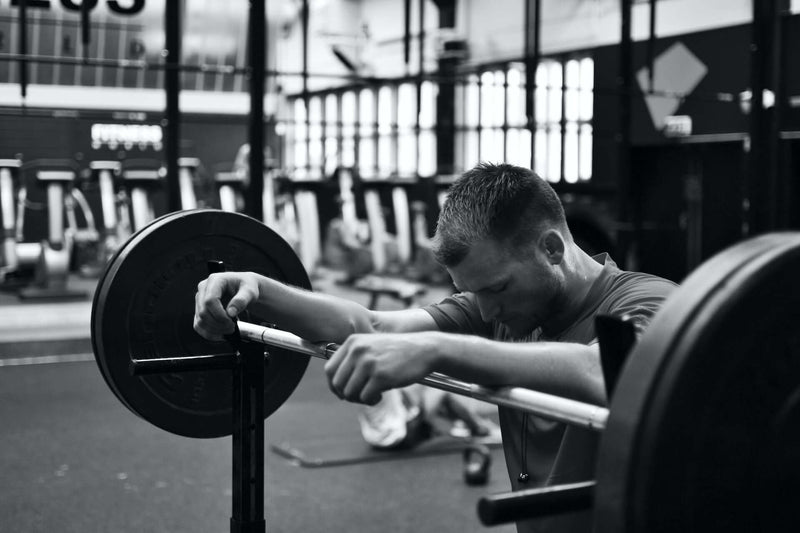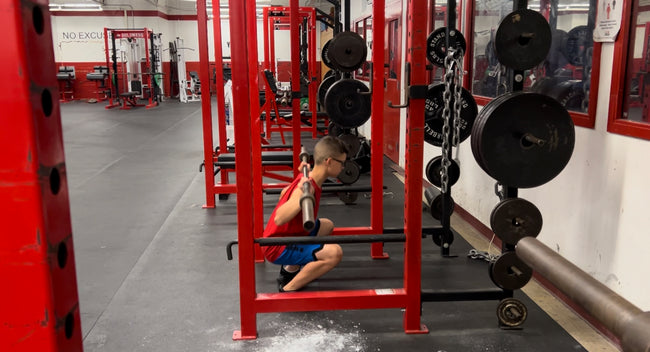Are you struggling with your training? Here are a few ideas and suggestions that may help guide you forward.
1. How much muscle have you gained? This needs to be a priority, especially with the upper body lifts. If you've eaten X to get to Y results- eating X isn't going to get you to Y + more results. You need to eat X + a lot more. This doesn't mean you should stuff your face with Big Macs and pizza, but if you are only eating a certain amount of food each day, it's only going to get you so far.
Whenever someone starts consistently eating for size (over several months, not days) I'm talking 2-3+lbs of meat each day, the results are crazy. Especially when they've been eating like kids or less than a 1lb of meat a day. If you don't eat meat, find another way around this obstacle. The take away: what got you to Point A, won't get you to Point B.
You can print out a weekly or monthly blank calendar page (you can also buy these from basic office supply stores). Write your goals at the top and then mark the days you actually do what you're supposed to be doing. Many times we get frustrated because we make a big change and aren't seeing results. Then you look at your calendar and are reminded it hasn't even been a week yet (even though it feels like forever). Even if it's not going perfect, you'll definitely be doing better and are moving towards your goals in a measurable way.
2. Are you looking outside the box for assistance work? How have you stepped that up? For example, DB/handle push-ups provide a bigger range of motion (ROM), DB bench at different angles with full ROM and a ton of force and purpose, dips, lots of upper back/lats. Has your chins/DB rows improved greatly? They need to if you want to get to the next level. What about your arm strength? Are your abs and low back being trained like an animal? Or do you believe that "squats and deadlifts are good enough for you mid-section?" What about your leg strength? Do you have a "dumb-dumb" leg movement that drives your leg strength? That's a lot of questions but all about the same thing- intense and purposeful assistance work.
2. Are you looking outside the box for assistance work? How have you stepped that up? For example, DB/handle push-ups provide a bigger range of motion (ROM), DB bench at different angles with full ROM and a ton of force and purpose, dips, lots of upper back/lats. Has your chins/DB rows improved greatly? They need to if you want to get to the next level. What about your arm strength? Are your abs and low back being trained like an animal? Or do you believe that "squats and deadlifts are good enough for you mid-section?" What about your leg strength? Do you have a "dumb-dumb" leg movement that drives your leg strength? That's a lot of questions but all about the same thing- intense and purposeful assistance work.
Everything works together when you train - it's not just about the single movement. Unless you are genetically suited to perform the main lifts, you have to push assistance lifts and build more muscle.
3. In regards to the last statement "everything works together" - It's also true in the reverse - training can work AGAINST itself, especially with other lifts. There is a HUGE price to pay for each and every lift you do. When you are pushing the squat hard (or deadlift), there is a good chance your other lifts will suffer in this period. Not everything goes up, all the time, forever.
3. In regards to the last statement "everything works together" - It's also true in the reverse - training can work AGAINST itself, especially with other lifts. There is a HUGE price to pay for each and every lift you do. When you are pushing the squat hard (or deadlift), there is a good chance your other lifts will suffer in this period. Not everything goes up, all the time, forever.
This is the fantasy of the "linear progression crew." You will hit pockets of down time/plateaus and frustration. So enjoy the other lifts going up because they too will hit a wall and you'll remember these as "good times".
4. The answer is always something you haven't been willing to try consistently - sometimes it's doing less. Other times, it's doing a certain exercise. It's hard to know exactly what to do but the answer is definitely not "Change Nothing".
4. The answer is always something you haven't been willing to try consistently - sometimes it's doing less. Other times, it's doing a certain exercise. It's hard to know exactly what to do but the answer is definitely not "Change Nothing".
In my experience with athletes, they'll hit a wall on the bench press and it's always the same thing; get stronger on the assistance, be patient, don't try to "test" all the time instead, simply let the work "do the work". It's never going to happen overnight; if it did, everyone would be muscular and awesome. Don't expect a big result if you aren't pushing yourself in a different direction or being consistent with that effort. Look around you, if you do what the average person does, you will likely look and feel very similar to that person in line in front of you. I'm going to risk it and believe you probably want more.
5. As always, quality matters. Make sure your reps are aggressive and dialed in on both main movements and assistance. Reps should be done with purpose and with a goal in mind; not just to finish the set. There is a time and a place to phone in your assistance work (sick, lacking sleep, other serious short term priorities) but not when you want to make progress a priority.
5. As always, quality matters. Make sure your reps are aggressive and dialed in on both main movements and assistance. Reps should be done with purpose and with a goal in mind; not just to finish the set. There is a time and a place to phone in your assistance work (sick, lacking sleep, other serious short term priorities) but not when you want to make progress a priority.
If you're not sure what to do or how much or how little to do...I wrote a few books on that. One of these simple training books can take you very far with way less stress and confusion. Pick the program that fits your life/schedule- the program that interests you and DON'T change a bunch of stuff. They are balanced as written. Following a specific plan can be the thing that frees you up to work hard and have fun in the gym again as opposed to manipulating and negotiating your way through each individual session. None of us should be doing that.
If needed, review the above again and consider which area you are willing to make a big change and which other area you are willing to give new effort and attention. Write it down in a way that makes it real and you can track your progress. That would be a manageable amount of measurable change to get you moving again.





